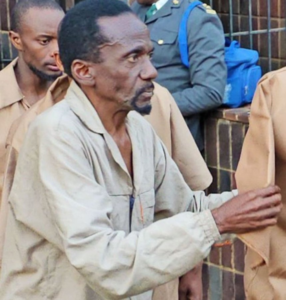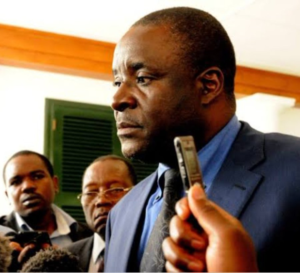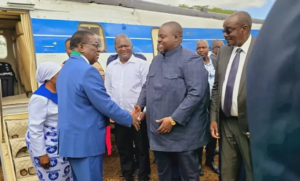SADC UNITED: A RALLY FOR DEMOCRATIC VIGILANCE AMID ZIMBABWE’S ELECTORAL STORM

In a striking manifestation of solidarity, the leaders of the Southern African Development Community (SADC) have unyieldingly supported the regional entity’s election observation mission report, a document that unreservedly dismissed Zimbabwe’s latest contentious electoral results. Regardless of Zimbabwe’s governing party, Zanu PF’s efforts to undermine the SADC’s endorsement, the truth remains glaring – the SADC leaders are wholeheartedly behind the mission’s report, endorsing it at an institutional level and championing the adherence to well-founded electoral procedures not only in Zimbabwe, but also in Eswatini and forthcoming elections throughout the region.
The SADC chiefs are steadfast in their position, underlining the significance of navigating through all pertinent channels and solutions to confront the explosive situation in Zimbabwe. This encompasses the involvement of the SADC troika on politics, defence, and security cooperation, alongside calling an extraordinary summit to deliberate upon the situation.
The origins of this steadfast stance are rooted in the initial report by the SADC election observation mission, which astonishingly disapproved of Zimbabwe’s disputed elections. This viewpoint was mirrored by various other observer missions, all of which labelled the Zimbabwean elections as a sham.
Diplomatic personnel in Harare, and within the SADC headquarters in Gaborone, Botswana, and Lusaka, Zambia, are united in their support for the mission’s conclusions. They, however, recognise the sensitive nature of the predicament, as they are devoted to averting a profound rift within the SADC concerning Zimbabwe.
The SADC leaders staunchly argue that the integrity of the organisation should not be compromised by a nation that habitually meddles with elections every quintet of years.
Zambia’s President Hakainde Hichilema, acting as the current chair of the SADC troika on politics, defence, and security cooperation, played a crucial role. On receiving the election observation mission report on Zimbabwe from its leader, Nevers Mumba, and bolstered by the secretariat led by Executive Secretary Elias Magosi, President Hichilema delivered the report to Zimbabwean President Emmerson Mnangagwa.
It is anticipated that Zimbabwe will officially respond to the report’s findings and recommendations in a way that aligns with the guidelines set forth in the SADC Treaty, the Protocol on Politics, Defence, and Security Cooperation, and the SADC principles and guidelines overseeing democratic elections, all binding on Zimbabwe as a member of the regional alliance.
Hichilema sought counsel with the SADC summit chair, President Lourenço Joao of Angola, and the ministerial troika concerning the pathway ahead before the recent assemblies. A pressing troika meeting of ministers and leaders of the organ on politics, defence, and security was decided to be convened to tackle the Zimbabwean crisis.
This meeting, presided over by Hichilema, occurred last week in Lusaka, Zambia, and was preceded by a preparatory gathering of relevant ministers. The dialogues accentuated that Zimbabwe must honour the values and principles of the SADC institution, along with respecting the SADC Treaty and protocols.
The SADC leaders have assumed accountability for the report, evoking considerable disquiet among Zimbabwean authorities and their backers. Diplomats within the SADC highlight that consensus-driven conversations are progressing, fuelling calls for an extraordinary summit to address the Zimbabwean matter.
The severity of the situation calls for collective contemplation and decision-making among the SADC leaders, shunning fragmented strategies. South African President Cyril Ramaphosa recently hinted that SADC would assemble to discuss the Zimbabwe report, hinting at ongoing clandestine procedures.
The ongoing consultative endeavour aims to orchestrate a special meeting in Zimbabwe to hold the nation to account. While Zimbabwe garners some support from nations like Eswatini, Mozambique, South Africa, Namibia, and Botswana, it is notable that the leaders of Botswana and Namibia abstained from attending Mnangagwa’s thinly attended inauguration.
South Africa, conversely, has actively plunged into the Zimbabwean crisis, acknowledging the pressing need for a resolution, especially considering its own impending elections next year. The region’s leaders are bound together in their resolve to uphold democratic principles and ensure Zimbabwe abides by established electoral processes.





